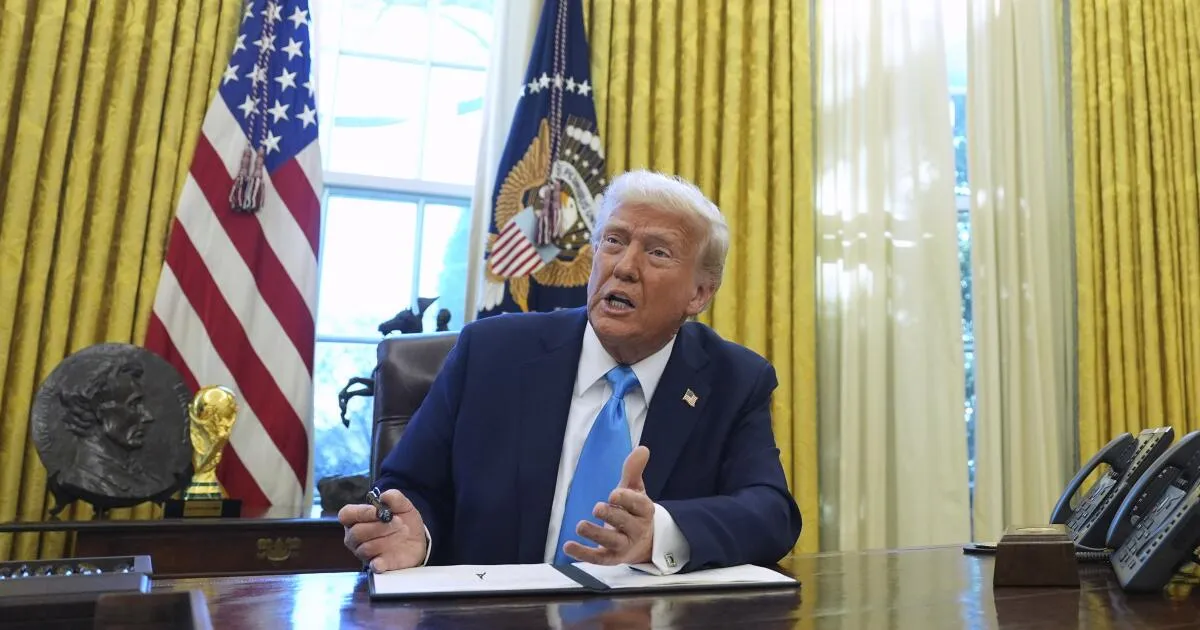
On Monday, the Supreme Court delivered a significant ruling allowing the Trump administration to utilize a wartime law for the deportation of individuals alleged to be members of a foreign crime gang. However, the court stipulated that these individuals must be granted the opportunity to challenge the government’s claims. This decision, passed by a narrow 5-4 vote, overturned previous orders from judges in Washington, who had asserted that the Trump administration had overreached its authority.
The ruling is viewed as a considerable victory for Trump and a setback for federal judges aiming to limit presidential power. In an unsigned opinion, the court stated that a group of alleged Venezuelan gang members facing deportation to El Salvador are permitted to appeal their cases. Importantly, these appeals must be filed before a federal judge in Texas, where the detainees are currently held.
The Supreme Court emphasized that the rights of these detainees against summary removal are not currently in dispute. "The detainees must receive notice after the notice of this order that they are subject to removal. The notice must be afforded within a reasonable time and in such a manner as will allow them to actually seek habeas relief in the proper venue before such removal occurs," the court stated.
This ruling represents the Trump administration’s backup plan after initially asserting that the detained individuals had no right to appeal their cases. The administration invoked the Alien Enemies Act of 1798, claiming the president holds the wartime power to deport "hostile" aliens. While the Supreme Court did not directly address this assertion, it confirmed that detainees have the right to appeal their removal orders in Texas.
"Today's order confirms that the detainees subject to removal orders under the Alien Enemies Act are entitled to notice and an opportunity to challenge their removal. The only question is which court will resolve that challenge," the court's majority opinion concluded. The majority included Chief Justice John G. Roberts Jr. along with Justices Clarence Thomas, Samuel A. Alito Jr., Neil M. Gorsuch, and Brett M. Kavanaugh.
Notably, Monday’s ruling does not pertain to the nearly 200 men deported to El Salvador on March 15. Instead, it sets the legal groundwork for the remaining detainees who may face deportation in the future.
In dissent, Justices Sonia Sotomayor, Elena Kagan, Ketanji Brown Jackson, and Amy Coney Barrett expressed their concerns regarding the ruling. Sotomayor criticized the government’s actions, stating, "The Government’s conduct in this litigation poses an extraordinary threat to the rule of law." She argued that rewarding the government for its behavior is indefensible.
The U.S. immigration law permits the government to deport individuals with a criminal record. However, the Trump administration decided to bypass traditional legal frameworks, opting for expedited and secretive deportations of hundreds of Venezuelans suspected of gang affiliation based on visible tattoos. The administration invoked the Alien Enemies Act, a law dating back to President John Adams during concerns of a potential war with France.
This law has been previously applied during significant conflicts, including the War of 1812 and both World Wars. On March 15, it was invoked again when Trump issued a proclamation about an alleged invasion by the Tren de Aragua gang, describing it as conducting "irregular warfare" against the United States.
As the Trump administration prepared to deport over 200 Venezuelans from Texas to El Salvador, a federal judge in Washington initiated a sudden hearing to assess the legality of these deportations. ACLU attorney Lee Gelernt filed a lawsuit on behalf of five men claiming they were not gang members but feared deportation to dangerous conditions in El Salvador. The judge issued a temporary restraining order, questioning the legal basis for the deportations.
While the five men remained in Texas due to the restraining order, three planeloads of individuals were sent to El Salvador, where they were documented in distressing conditions. Many were deported as "alien enemies," raising significant legal and ethical concerns.
This ruling underscores the ongoing debate surrounding the balance of power between the executive branch and the judiciary in matters of national security. The Supreme Court's decision affirms the importance of judicial oversight while navigating the complexities of immigration law and the rights of detainees. As the legal landscape continues to evolve, it remains essential to monitor how this ruling will impact future cases related to immigration and deportation.